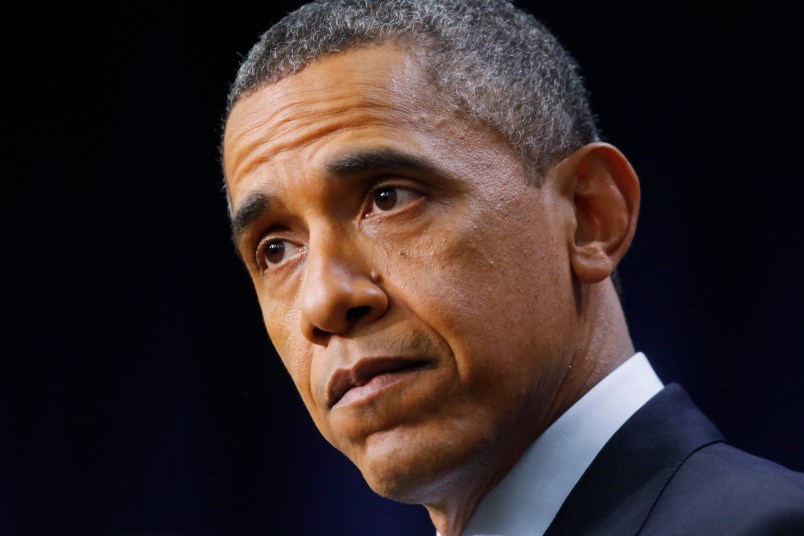68. That’s how many times the Congressional Budget Office, Capitol Hill’s official scorekeeper, ran the numbers on Obamacare while the law was being drafted. And not once, according to a new analysis, did CBO officials give any credence to the legal challenge now being brought by the law’s opponents.
In a review for the Scholars Strategy Network, Harvard University’s Theda Skopcol scrutinized 68 reports that CBO released during the 2009 and 2010 debate. She was looking for any evidence that Congress intended for the law’s subsidies to be available only on state-run exchanges, as the plaintiffs in King v. Burwell argue. If they prevail at the Supreme Court, health coverage for millions in the 36 states using the federal exchange would be at risk.
She didn’t find any.
“Throughout hard-fought debates about health reform, lawmakers in both parties looked for ways to save taxpayer money,” Skocpol wrote in the report, flagged by Vox’s Sarah Kliff. “Partial subsidies would have greatly reduced costs, so the total absence of this kind of analysis among the 68 reports prepared by CBO for the 111th Congress (and its continuing absence in reports done by the next Congress) is the best objective evidence we have that no one in Congress considered premium subsidies restricted to certain states to be either possible or desirable.”
“If Congress intended to threaten states with withheld subsidies,” she concluded, “nobody said so.”
Officials who were working at CBO at the time have told TPM in detail that they don’t recall anyone ever raising the possibility that the law’s subsidies would not be available on the federal exchange. Congressional staffers who were deeply involved in drafting the law have said the same.
“It definitely didn’t come up. This possibility never crossed anybody’s mind,” David Auerbach, who was a principal analyst for the CBO’s scoring of the ACA, told TPM in August. “If we started to score it that way, they would have known that, and they would have said, ‘Oh, oh my gosh, no, no no,’ and they probably would have clarified the language. It just wasn’t on anybody’s radar at all.”
That evidence hasn’t dissuaded the law’s opponents, who have argued that it was always Congress’s intentions to limit subsidies to state exchanges. Now the question will go to the Supreme Court in the coming months.










Oh look…68 more reasons for Scalia et al to pretend the legal analysis doesn’t have to go that far!!!
This is just ridiculous. A game of semantics that risks the lives and health of millions of people. No one has ever even pretended the subsidies would be limited to states that set up their own exchanges. It insults the intelligence of a moron to act as though anyone ever considered such a stupid idea.
The assumption here seems to be that the SCOTUS will be reasonable and (more importantly) logical in its decisions concerning the O-care case before it. I am cynical enough to believe that logic will play no part in their decision.
This is the type of policy analysis that I read TPM for. I do not read it for whether Joe Biden is Uncle Creepy or whether Cosby is being mistreated more than Woody Allen.
Congratulations to Theda for her analysis.
Your facts are no match for our blind ideology.